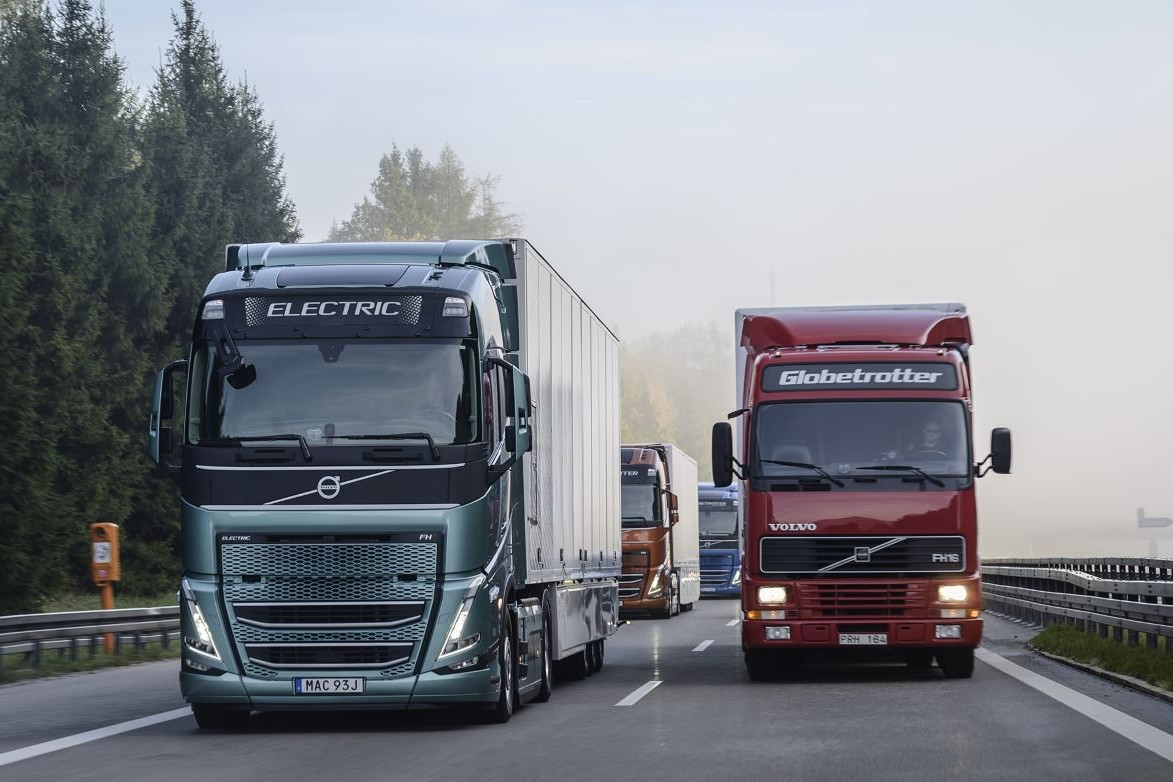Beating the odds

Unlike many of the operators whose stories I report on, Daniel Ashville Louisy isn’t a second-, third- or fourth-generation haulier, and nor was he born with a silver spoon in his mouth. He was raised in a single-parent family, living in social housing, and everything he has today he’s worked for. His rags-to-riches story is inspirational and demonstrates incredibly good business acumen.
“I’m a builder by trade and was doing bathrooms, extensions, kitchens, lofts and basements,” he explains. On one occasion in 2013; he had a team of men digging a basement in London, but they had to down tools because the skip was full, and there was no sign that it was about to be collected.
“So, there were 10 fellas in the basement, everyone sitting around smoking cigarettes, and I said, ‘Why aren’t you digging?’, and they said, ‘How can we when the skip is full?’” he recalls. “So, the next day, I decided I’d had enough, and said ‘I’m getting a lorry’.”
By his own admission, he knew nothing about trucks, but that wasn’t going to deter him. After a little bit of advice from a friend, he purchased a used DAF CF85 8×4 tipper grab.
Running a lorry proved to be far more complicated than he’d expected, and looking back, he describes the experience as “a baptism of fire”. It didn’t help that he didn’t have his HGV licence, so had to learn rapidly.
Having invested in a truck, suddenly, the company found itself with very few basements to dig. So, Daniel went looking for work elsewhere. “I knew who my building competitors were, as I would see their names on tenders,” he says. “So, I went to them all and said, ‘I can’t beat the others on price, but I’ll be there when I say I’ll be there.’” This approach worked, and one tipper-grab very soon became three tipper-grabs and a tipper.

“Then Wandsworth [the London borough] banned grabs from taking out of skips, and I began to lose work,” remembers Daniel. “So, we started buying skip lorries, too.”
This was quickly followed by another change in direction. “We would arrive at a job only to be told we couldn’t load as a concrete lorry was there, and that the concrete lorry was more important. So, we bought a volumetric concrete lorry! So, then, we had a concrete lorry, grabs, tippers and skips,” says Daniel. “But then, when we turned up with the concrete lorry, people were telling us that the pump wasn’t there, so we’d have to wait. So, we bought a pump too.”
But there was still one serious hurdle to overcome. “If we priced a job, and two other competitors priced it, I would end up having to use their sand. And they would invariably say, ‘We ain’t got no sand.’ I would say, ‘I can see sand over there’, and they’d say, ‘That’s not for you, that’s for a special job.’ I kept coming unstuck. People would just keep backing me into a corner. I needed a railhead.”
Fortunately, his site had a defunct railway siding, which after much toing and froing, he got permission to reopen. And in the summer of 2019, the first train rolled in. As well as being a great move for his company, Daniel sees the railhead as being positive for both the economy and the environment. “If a man has a million tonnes of stone elsewhere in the UK, and he can’t sell it, then why not bring it here by rail? Every train takes 120 lorries off the road,” he says.
The company continues to expand and recently opened Ashville Plant Hire, a joint venture with high-profile north England haulier Fox Group. It’s also in the process of opening a concrete batching plant.
So, with plenty of new projects on the go, I ask about the future. Where does he see the company going in the next decade?
“In 10 years, I would like to see Ashville with hubs all over the UK, each with a wash plant next to a batch plant, recycling 95% of what comes back to the yard,” he says. “I would like rail terminals, which are all fed from an Ashville quarry, and I would like an Ashville locomotive hauling Ashville wagons. And I’ve been looking at ships, too, which carry 90,000 tonnes of material, much to my financial director’s horror.”
Read more
The Foden way
0 Comments7 Minutes
Red-tape resilience
0 Comments12 Minutes
Middle Eastern Magic
0 Comments1 Minute
30 years of innovation
0 Comments13 Minutes





